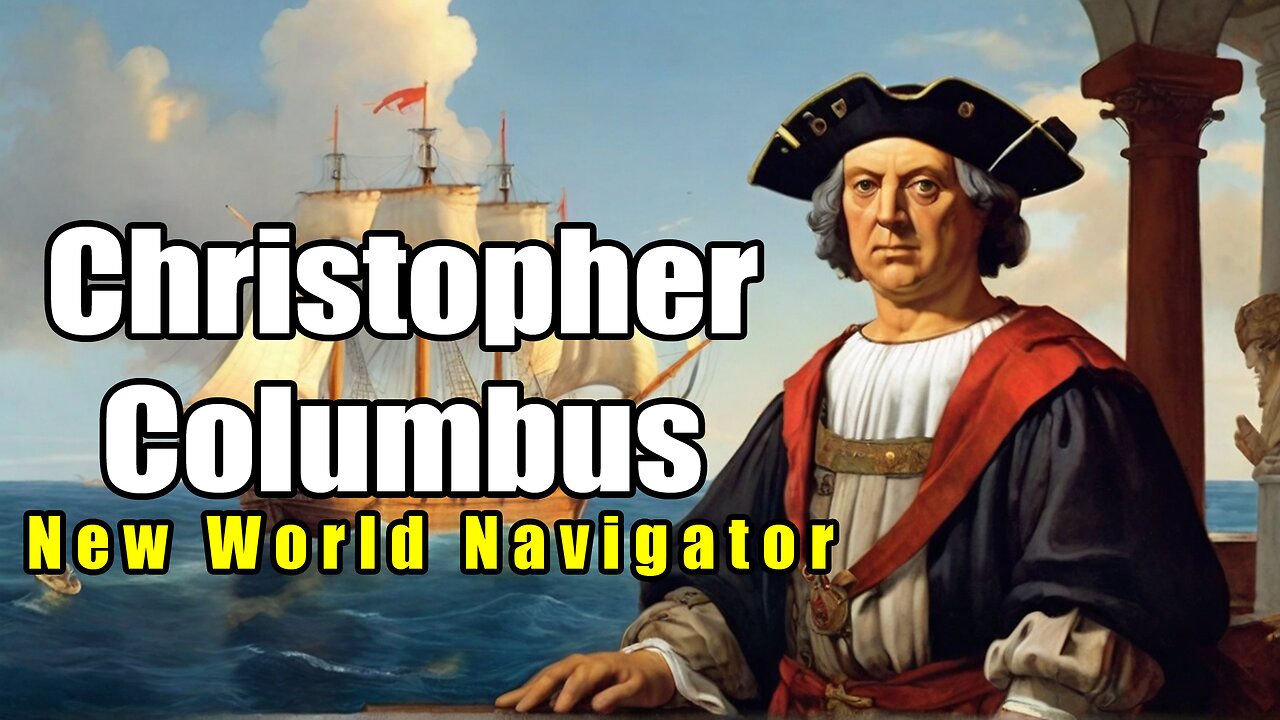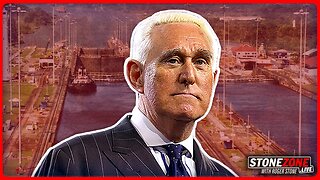Premium Only Content

Christopher Columbus - The New World Navigator (1451 - 1506)
Christopher Columbus (1451-1506) was an Italian explorer and navigator who played a pivotal role in the Age of Discovery by opening the Americas to exploration and colonization by Europeans. Here is an overview of Christopher Columbus's life and his significant contributions to the history of exploration:
Early Life:
Birth and Background:
Christopher Columbus was born in Genoa, Italy, around 1451. Little is known about his early life, and there is some debate about his precise birthplace.
Seafaring Background:
Columbus came from a family of modest means but had early exposure to maritime life. He gained experience as a sailor and navigator in the Mediterranean.
Exploration Plans:
Quest for a Westward Route to Asia:
Inspired by the desire to find a westward route to Asia and the lucrative spice trade, Columbus formulated plans for a transatlantic voyage.
Seeking Sponsorship:
Columbus sought sponsorship for his expedition from various European monarchs and finally gained support from Ferdinand II of Aragon and Isabella I of Castile, the rulers of Spain.
Voyages to the New World:
First Voyage (1492):
On August 3, 1492, Columbus set sail from Spain with three ships: the Santa Maria, the Pinta, and the Niña. On October 12, 1492, he reached the islands of the present-day Bahamas.
Encounters in the Caribbean:
Columbus explored various islands in the Caribbean, including Cuba and Hispaniola (modern-day Haiti and the Dominican Republic).
Subsequent Voyages:
Columbus completed three more voyages to the Americas (1493-1504), exploring parts of South and Central America and the Caribbean.
Legacy and Impact:
Columbian Exchange:
Columbus's voyages initiated the Columbian Exchange, a wide-ranging exchange of plants, animals, and cultural elements between the Americas and the Old World.
Naming of the Americas:
The continents of North and South America were named after the Italian explorer Amerigo Vespucci, who realized that Columbus had encountered a new landmass previously unknown to Europeans.
Controversies and Criticisms:
Columbus's legacy is complex, with debates over his treatment of indigenous populations and his role in the larger history of colonization. Criticisms of his actions, including the impact on native peoples, have led to reevaluations of his historical significance.
Later Years and Death:
Challenges and Disputes:
Columbus faced challenges and disputes, including tensions with Spanish authorities and accusations of mismanagement.
Final Years and Death:
Christopher Columbus died on May 20, 1506, in Valladolid, Spain. His remains were later interred in the Cathedral of Seville.
Navigation and Exploration:
Navigation Techniques:
Columbus employed a combination of traditional navigation methods, such as dead reckoning, and newer techniques, including the use of celestial navigation instruments.
Maps and Cartography:
Columbus's voyages contributed to the improvement of maps and navigational charts, enhancing the knowledge of the world's geography.
Christopher Columbus's exploration marked the beginning of significant interactions between the Old World and the New World. While his journeys opened the Americas to European exploration and colonization, the consequences of these encounters had profound and often controversial impacts on the indigenous populations and the course of world history.
-
 33:49
33:49
Quite Frankly
15 hours agoThe Christmas Eve Midnight Telethon
26.4K4 -
 2:12:46
2:12:46
Price of Reason
14 hours agoAmber Heard BACKS Blake Lively Lawsuit Against Justin Baldoni! Is Disney CEO Bob Iger in TROUBLE?
12K7 -
 1:01:17
1:01:17
The StoneZONE with Roger Stone
9 hours agoChristmas Edition: Why the Panama Canal is Part of the America First Agenda | The StoneZONE
69K23 -
 LIVE
LIVE
LFA TV
19 hours agoLFA TV CHRISTMAS EVE REPLAY
1,644 watching -
 4:33:48
4:33:48
tacetmort3m
1 day ago🔴 LIVE - THE ZONE KEEPS PULLING ME BACK - STALKER 2 - PART 15
51K12 -
 22:45
22:45
Brewzle
16 hours agoI Went Drinking In A Real Bourbon Castle
35K3 -
 48:36
48:36
PMG
1 day ago $2.64 earned"Parkland Parent Speaks Out On Kamala Harris Using Victims"
27.6K3 -
 4:06
4:06
The Lou Holtz Show
15 hours agoCoach Lou Holtz’s Heartfelt Christmas Message 🎄 | Family, Faith & Notre Dame Spirit 💚 #christmas
20.6K -
![ROSEANNE BARR - Her Journey, TRUMP, and the MAGA GOLDEN AGE! [INTERVIEW]](https://1a-1791.com/video/s8/1/M/m/B/2/MmB2v.0kob.1-small-ROSEANNE-BARR-Her-Journey-T.jpg) 51:35
51:35
Dr Steve Turley
1 day ago $19.06 earnedROSEANNE BARR - Her Journey, TRUMP, and the MAGA GOLDEN AGE! [INTERVIEW]
55.5K54 -
 57:38
57:38
The Tom Renz Show
13 hours agoMerry Christmas - The Tom Renz Show Christmas
92.2K17